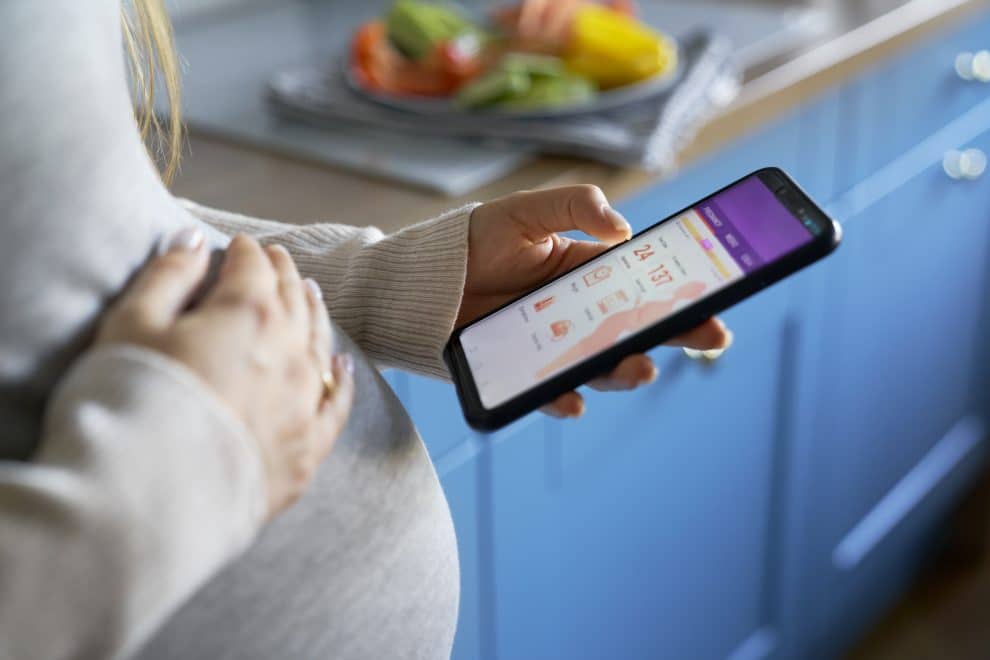Women who struggle to get pregnant are turning to fertility apps. There are dozens of apps now available for download on iPhone and Android devices to help women determine their most fertile days each month. But the effectives of these apps continue to raise pertinent questions.
The Apple Watch will soon be launching an app called Cycle Tracking for tracking menstrual cycle and fertility. There are already hundreds of apps – such as Kindara, Clue, Period Tracker, Ovia, Lady Cycle, et al – for keeping tabs on ovulation and helping women, either conceive faster or prevent pregnancies.
Female technology – or ‘femtech’ – is often focused on women’s reproductive health and the market is booming, with studies expecting it to touch $50 billion by 2025.
Apps galore
Simply put, fertility apps use personalised data to help women identify the most fertile times of the month – the days when they are ovulating and most likely to conceive. The most common ones are calendar-based apps, where users feed in data about the start and end of their periods. Sympto-thermal apps are more advanced, as they are based on physical signs of ovulation, such as basal body temperature. And then, there are others that combine the best of both worlds to offer a better prediction.
While some of the fertility apps, available on iOS and Android, are free of cost, others come with a subscription or device cost.
Studies say
According to a much-publicised recent study, Ava (wearable tracker and app that monitor heart rate, body temperature and breathing) was able to predict a six-day fertile window with 90 per cent accuracy.
Not too long ago, a study had claimed that Daysy (a fertility monitor) could predict fertility with 99.4 per cent accuracy. After a researcher at the Guttmacher Institute, a leading research and policy organisation in the US, raised concerns about the claimed number, the study had to be retracted over fundamental flaws in its methodology.
Many of the studies hailing the effectiveness of fertility apps are found to lack scientific rigour. A study from Columbia University Medical Center, for instance, found that of 1,116 free fertility apps in Apple’s App Store, only five per cent cited any professional or medical involvement. Not surprisingly, merely 20 apps were found to be accurate in their predictions.
Similarly, research regarding the efficacy of apps as contraception is far from encouraging. When researchers at Georgetown University studied 30 fertility apps, they found that 24 of them misclassified fertile days as infertile, and vice versa! German researchers encountered similar results when they looked at 12 popular fertility apps to study the plausibility of using apps to plan a pregnancy. Only three sympto-thermal apps proved to work.
Points of contention
Doctors are wary of women using fertility apps as a birth control device. While the lure of non-hormonal and non-invasive options is understandable, it’s important to recognise that apps can only make an educated guess; they are not reliable contraceptive choice.
Another growing concern is regarding data privacy. In a recent BMJ study of 24 health apps, it was found that 19 shared user data with companies, such as Facebook, Google and Amazon, despite developers claiming they did not collect personally identifiable information. Earlier this year, media reports stated that fertility apps had raised at least $350 million since they launched, in part through their use of the personal user data.
A recent, thought-provoking story in The Guardian also raises tough questions about the ulterior motives and not-so-transparent agendas of these fertility companies. What happens when unsuspecting women fall prey to the prejudices of Catholic Church-associated groups and individuals who oppose abortion rights and contraception?
The bottom line
Fertility apps provide women an easy way to track data about their bodies, leading to a sense of ownership and autonomy. Many of them also offer online forums that allow users to connect with others in similar situations, such as undergoing fertility treatments like in vitro fertilization (IVF), for instance.
Nonetheless, fertility apps come with their share of unique challenges. They can lead to unplanned pregnancies as well as late diagnosis of infertility and other medical conditions like polycystic ovary syndrome (PCOS) and thyroid problems.
Not to forget, concerns about data privacy and trust.


















Add Comment